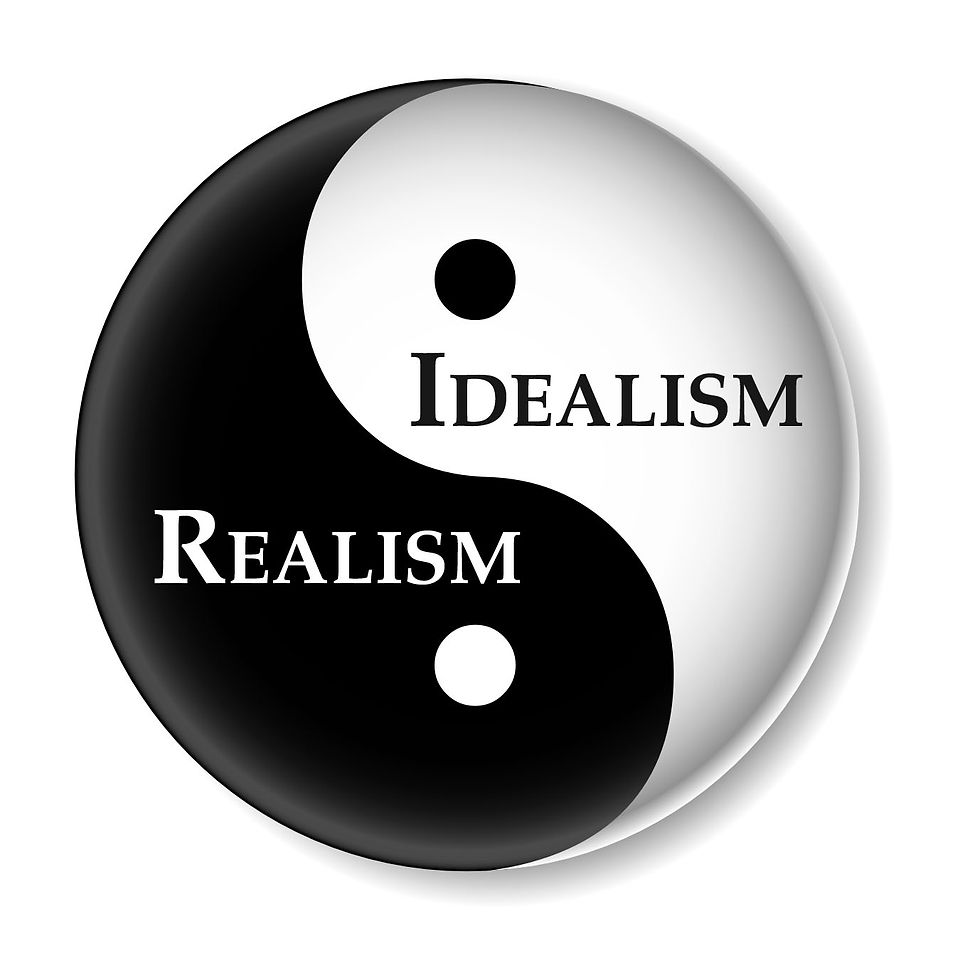Maturity: Reality and Ideals
- Zac
- Dec 12, 2015
- 3 min read
Maturity: Reality and Ideals

Maturity is a funny concept, but it's not hard to understand. In a word, it is very realistically based, which means the so called maturity is merely something that has to be constructed on a realistic background). For example, one must necessarily attain financial independency to claim maturity. That means having a job is a premise. Or one must fill a part of oneself with the other (e.g. a mother must always care for her son or daughter). In other words, matured people take responsibility seriously. They replace a part of themselves with someone they love and care. Besides, I can ALMOST equate maturity with being realistic. As to survive, one must be realistic. And the matured people understand what the priority is; they need to survive before they can do anything else. This is what I mean by maturity is realistically based. However, I cannot equate maturity with being realistic, because you can remain idealistic while being matured. The example is these types of people: artist, musician, writer, film maker, etc. To further explain what I mean by idealistic, we should understand the common conception of reality and ideals.
The Common Conception
Conception 1: If you are rich, fine, you can go for whatever dreams you like. But if not, you can either be realistic or die, meaning that you have to give up the idealistic things. For example, you enjoy writing, but if it won't provide you income, then you have to give it up. This is however true for any society.
Conception 2: Young people are mostly idealistic, and as they get older, they will realize how stupid they are.
The Challenge (You will face this challenge if you are):
Naturally idealistic, and much more idealistic than many others.
Not rich, which force you into a dilemma: be realistic or die.
Turning into adulthood, but refusing to give up your heart's desire.
Confront the Challenge
There is no other way to confront this challenge without accepting the fact that you have to be realistic to survive. However, being realistic has nothing to do with giving up your ideals. What is most important is not the specific ideals, namely goals. Those are the common conception of ideals. An ideal is a perspective, a way of living, a sense of the world and people. An ideal cannot be smelt, seen, or touched, but it can be perceived through experience, knowledge, and reasons. For example, an historical perspective teaches us that history repeats itself, because there are invisible laws that govern human society; they could be emotions, sub-consciousness, or politics. Although we are so far from the past with the advance of science and technology, the universal human condition is never changed. Another example is a film maker's perspective. It is very obvious that they are human too and their film's materials must also come from this world, yet they can present something so ordinary in a different and appealing way. This is what I would call an ideal, or an idealistic perspective.

I said not everyone can be idealistic. Maybe now you understand why. Idealistic people are not trying to reach some improbable goals. It is the sense of the world they have that drive them to a different path. Maybe now you realize you are not idealistic or you have never been idealistic in your whole life. You don't have to. It is like some people are great photographers, some people are great painters, but you are not. You might be a great dancer.
The Challenge Is Resolved.
Be realistic as to survive.
Be idealistic as to live out your way of life.

Comments